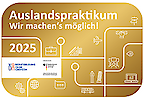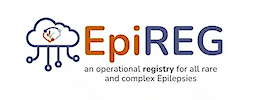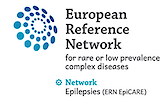Important information for patients
Patients with general healthcare insurance


Tel.: +49 228 287-16195
Office hours:
Mon: 8:30 am - 12:00 pm and 12:30 pm - 3:00 pm
Tue: 8:30 am - 1:00 pm
Wed: 8:30 am - 12:00 pm
Thu: 8:30 am - 12:00 pm and 12.30 pm - 3:00 pm
Fri: 8:30 am - 1:30 pm
Fax: +49 228 287-14486
Please be sure to include your name or the name of the patient.
Important: Please note that information is not securely transmitted if sent per email!
Patients with private healthcare insurance
(private outpatient/ambulant consultation with Professor Dr. Surges):
Tel.: +49 228 287-15728 /-19388
Office hours:
Mon - Fri: 2 pm - 4 pm
Fax: +49 228 287-14328
and
Please be sure to include your name or the name of the patient in the email.
Important: Please note that information is not securely transmitted if sent per email!
Appointments for the Foerster Ward


Tel.: +49 228 287-19363
Fax: +49 228 287-11304
Please be sure to include your name or the name of the patient in the email.
Important: Please note that information is not securely transmitted if sent per email!
We can arrange telephone- and video consultations for you. You can set up an appointment and your visit with the doctor can take place from the comfort and convenience of your home. With this service, you can stay at home and still be treated by your physician. You will not need to spend any time in the waiting room, but if waiting should become necessary, you can do so in your own living room. In the video consultation, you can see and hear your physician. Telephone- and video consultations can be used by patients who are known to us, as well as those who contact us for the first time. The digital consultations are exclusively for personal meetings and consultations wherein no on-site examinations are required (i.e. conducting an EEG, taking blood samples). Video consultations can take place from anywhere. The only requirements are a Smartphone, a tablet, or a computer with a webcam and microphone, as well as an internet connection.
All the technical details addressing this subject can be found in our patient flyer (German).
Dear patients,
Since the University Hospital Bonn will be mandatorily using the electronic prescription (E-prescription) starting January 1, 2025, it is now required that, in addition to a referral, your health insurance card must be scanned once per quarter when requesting prescriptions. Therefore, a substitute certificate from your health insurance provider is not sufficient. Thank you for your understanding.
Patients with general health insurance:
Patients with private health insurance:
Treatment in our outpatient clinic
- Initial administration and optimization of seizure-suppressing medication in terms of efficacy and tolerance
- Consultation and diagnostic testing after the first seizure (does an epilepsy already exist?)
- New procedures currently being tested: i.e. cannabidol, transcutaneous vagus nerve stimulation, new medications within the framework of pivotal clinical trials
- EEG diagnostic testing: resting-awake routine EEG, 24/48-hour mobile, long-term EEG
- Determination of the seizure-suppressing medication blood levels
- Assessment of the neuro-psychological side effects of medication within the psychological realm (performance capacity with regard to speaking/thinking, mental state/behavior)
- Counseling services addressing epilepsy and pregnancy concerns
- Counseling services addressing epilepsy and driving fitness (traffic medicine) concerns
- Counseling services addressing epilepsy and job selection/professional concerns
Treatment on our Foerster Ward
- Differential diagnostic testing: epilepsy or cardiogenic syncope, psychogenic non-epileptic (functional, dissociative) seizures, parasomnia disorders, movement disorders and others
- Aetiological diagnostic testing: what causes a new epilepsy to appear?
- Syndrome diagnosis: What form of epilepsy is present?
- Invasive and noninvasive preoperative diagnostic testing and epilepsy surgery (in cooperation with the Neurosurgical Department here at the University Hospital Bonn)
- Indications for additional, complementary, therapeutic procedures: vagus nerve stimulation, ketogenic diet
- Complex treatment of difficult-to-treat epilepsies: changeover/adjustment accompanied by, if necessary, ergotherapy, physiotherapy, neuropsychology/behavioral medicine, social counseling and/or logopedics (minimum of 8 days)
As part of our presurgical epilepsy diagnostic testing, we evaluate the possibility of conducting a safe and successful surgical procedure for treating epilepsy.
The goal of epilepsy surgery is continuous seizure freedom. Such procedures are possible only with focal epilepsy. In focal epilepsies, MRI images often display a structurally abnormal brain region wherein the seizures originate; this is referred to as the “seizure focus” or “focus”. During an epilepsy surgical procedure, the seizure focus is removed operatively. In less common operative procedures, the connections between the brain regions are detached (hemispherectomy, callosotomy). Implanting neurostimulators (e.g. vagus nerve stimulation) is also classified as a surgical procedure in epilepsy therapy.
While the operative procedure is conducted in our Neurosurgery Department (headed by Professor Dr. H. Vatter), the comprehensive, preceding presurgical epilepsy diagnostic testing takes place in our Department. In addition to imaging the brain by means of high-resolution magnetic resonance tomography (MRI), it must be proven that, with help of video-EEG monitors, a structurally abnormal zone in the brain (the so-called “lesion”) actually is, without exception, the origin of all the seizures the patient experiences. To that end, if possible, several epileptic seizures must be recorded which usually takes 7-14 days; normally, the epilepsy medication is reduced or totally discontinued over these days. Our Department has over 12 Video EEG beds.
A comprehensive neuropsychological examination is an essential part of the standard diagnostic protocol before an epilepsy surgery procedure. This assessment evaluates motor coordination, attention and executive functions, verbal and figural memory, language functions, visual-spatial abilities, emotional state, and personality. The examination is repeated one year after the surgery during a brief inpatient visit (follow-up).
In very rare cases, it is necessary to decisively improve the quality of the EEG measurement by implanting electrodes in the brain (e.g. in order to identify the seizure focus with absolute certainty).
After the seizure origin zone has been clearly defined, we must determine, together with the colleagues in our Neurosurgery Department, if operative removal of this brain area is possible without risk. Sometimes, additional examinations must be carried out (i.e. examination of speech dominance in the brain (i.e. with transcranial Doppler sonography, functional imaging, or with a Wada test).
Over the past few decades, the majority of necessary interventions were established as routine procedures and are used very frequently throughout the world. Since the end of the 1980s, approximately 4,000 patients have been treated with an epilepsy surgical intervention here in Bonn (adults and children); our centre has extensive experience in this regard.
By its nature, epilepsy surgery procedures cannot be undone (they are irreversible). However, analyses show that the standard routines for diagnostics and surgery work very well. Severe complications are very rare. Depending on the underlying disease, between 50-80% of patients who have been operated on remain seizure free.
The prerequisite for presurgical epilepsy diagnostic testing is so-called drug therapy resistance. After 2-3 regular therapy attempts have been carried out with various epilepsy medications or drug combinations, the chance of obtaining seizure freedom with a drug therapy is very low.
The costs are covered by health insurance.
For those patients who are either admitted to our Department for a few days of comprehensive diagnostic testing or to change their medication, we offer the so-called multimodal complex treatment for difficult-to-treat epilepsies.
During the course of a complex treatment, every patient obtains at least three therapy modules suggested for them, in addition to the medical treatment. Principally, we offer: physiotherapy, ergotherapy, neuropsychology, social consultation and speech therapy. These therapeutic approaches aim to improve the entire situation of the patient, in order to better cope with the epilepsy in addition to the challenges faced every day.
The frequency of individual therapies is established according to the needs of those affected.
A team of therapists and treating physicians meets for weekly case reports, wherein the therapy requirements as well as the goals and results of each patient are discussed in detail. Complex treatment lasts at least 8 days.
Often times, complex treatment also results in advice on aftercare therapies which are continued on an outpatient basis (i.e. physiotherapy, neuropsychological therapy) or sensible rehabilitation measures.
Complex treatment lasts at least 8 days.
The costs for complex treatment are covered by health insurance.
It is essential to clarify the disease in detail with the most modern diagnostic instrumentation available, particularly when a completely new seizure has occurred or the first drug therapy attempts were unsuccessful.
Here, differential diagnostics play a special role. Diseases of the heart can lead to “fainting spells” (so-called syncopes) that can, confusingly, look like epilepsy seizures.
Psychological stress can also cause seizure-like episodes which are similar to epilepsy but are not caused by epilepsy and, therefore, cannot be treated with epilepsy medication. Experts talk of functional (psychogenic) or dissociative non-epileptic seizures. Diagnostic clarification will take place in our Department in conjunction with our Psychosomatic and Psychiatry Departments. Currently, we are jointly establishing a Centre for Dissociate and Functional Disturbances for Research and aim to significantly improve the treatment of this seizure disorder.
If epilepsy has been correctly diagnosed, then the optimal treatment strategy depends significantly on the respective causes. Experts speak of the syndrome- and aetiology diagnostics.
For diagnostic issues, recording seizures events in video-EEG monitoring is very important. Our hospital has over 12 video-EEG beds. The extensive medical diagnostics are often supplemented by a neuropsychological examination.
Costs for differential-, syndrome-, or aetiological diagnostics are covered by health insurance.
The ketogenic diet is a very high-fat dietary therapy with very few carbohydrates (such as those found in pasta dishes, baked goods and sweets) that can be utilized for difficult-to-treat epilepsies.
During childhood, the ketogenic diet is very effective for certain types of epilepsy.
In adult patients, studies have also shown a significant improvement in seizure control. In these cases, a modified Atkins diet is typically used —a less restrictive form of the ketogenic diet that is easier to implement in daily life.
Here in our Department, we offer individual counseling and support for ketogenic dietary therapy. A detailed explanation of the different diet forms is provided in our outpatient clinic. The therapy then begins in our Foerster Ward as part of a multidisciplinary approach. This ensures that you are well-prepared for the dietary transition and that any potential side effects are identified early.
For more information or to schedule a consultation appointment, our team is happy to assist you.
Prior to every visit to our Department (outpatient- and inpatient appointments), we require the following information:
- Your health insurance card
- A referral from your general practitioner/family physician valid on the day of your examination (only for those patients with general health insurance): Sample of the required referral form
- For inpatients: a hospitalization referral from your treating physician.
- Copies of all documentation from previous examinations (e.g. summary reports of preliminary examinations, doctors‘ reports, MRI images of the brain, findings from previous neuro-/psychological examinations, etc.) Note: Copies will remain in the patient's file.
- A seizure calendar covering the seizure activity over the past months (if available).
- For patients from abroad: please bring translated copies of foreign language medical reports, provided that the reports are translated in either English or German.
- Prior to your visit to our Department, please familiarize yourself with the current Corona rules.
Other important information for patients at the University Hospital Bonn can be found here (German).
The Foerster Ward is on the second floor of the Department of Epilepsy.
Tel. Foerster Ward: +49 228 287-15706 / Fax: 0228 287-19351
The ward is comprised of over 28 beds of which 12 are equipped with 24- hour video EEG monitoring in order to record seizures (8 single rooms, 10 double rooms). All of the rooms are quiet and feature views of the woods.
Patients staying at the University Hospital Bonn can find additional information (i.e rules for visitors, registration, etc) here (German).
Children and adolescents (up to the age of 18) with epilepsy will be treated on an outpatient (ambulant) and inpatient (stationary) basis at the Departement of Neuropediatrics.
Over the past few decades, the Department of Epileptology here in Bonn has actively participated in some of the most important, pivotal clinical trials.
Within the framework of studies such as these, patients have the opportunity to participate in trials in order to try out new, not yet approved, medications which are in the early testing phase.
Contact for current clinical trials:
Dr. Michael Rademacher, Neurology
Tel.: +49 228 287-16295 or -16912
The Deutsche Epilepsievereinigung e.V., the Federal Association of Epilepsy Self-Help in Germany, has published a special issue on SUDEP. The author of this technical article is Uni.-Prof. Dr. med. Rainer Surges.
You can download the special issue here (in German).
Information on SUDEP is also available on the Deutschen Epilepsievereinigung e.V. and the SUDEP-Initiative websites (in German).
In the current issue of the members' magazine einfälle, an article authored by Prof. Surges deals with the question of whether SUDEP can be prevented through the use of so-called wearables in epilepsy treatment.
The article can be downloaded here (in German).
Together Against Sudden Epilepsy Death (SUDEP).
Verein zur Förderung der Epilepsieforschung e.V.






















